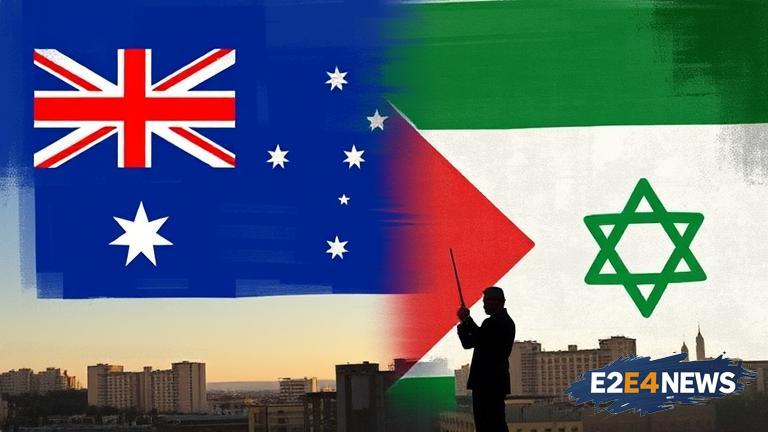The Israel-Gaza conflict has been escalating, with both sides suffering significant losses. The situation has sparked a global debate, with various countries weighing in on the issue. Recently, France formally recognized Palestine as a sovereign state, a move that has been met with both praise and criticism. However, Australian Prime Minister Anthony Albanese has announced that his country will not be following suit. Albanese stated that Australia’s position on the matter remains unchanged, and that they will continue to support a two-state solution. The decision has been met with disappointment from Palestinian advocates, who argue that recognition is essential for achieving peace and justice in the region. On the other hand, Israeli officials have welcomed Australia’s stance, seeing it as a rejection of Palestinian attempts to unilaterally declare statehood. The conflict between Israel and Gaza has been ongoing for decades, with periods of relative calm punctuated by outbreaks of violence. The latest escalation has seen both sides exchange rocket fire and airstrikes, resulting in significant damage and loss of life. The international community has been calling for a ceasefire, with the United Nations playing a key role in attempting to broker a peace agreement. Despite these efforts, a lasting resolution remains elusive. The Israeli government has long maintained that it will not negotiate with Hamas, which it considers a terrorist organization. Meanwhile, Palestinian leaders argue that Israel’s occupation of the West Bank and Gaza Strip is the root cause of the conflict. The issue of Palestinian statehood is complex and contentious, with different countries and organizations holding varying views. While some argue that recognition is a necessary step towards achieving peace, others believe that it would be premature and potentially counterproductive. The European Union has been divided on the issue, with some member states recognizing Palestine and others not. The United States has historically been a strong supporter of Israel, although the Biden administration has taken a more nuanced approach to the conflict. As the situation continues to unfold, it remains to be seen how the international community will respond. The Australian government’s decision not to recognize Palestine has significant implications for the country’s relationships with both Israel and the Palestinian Authority. It also reflects the complex and often contradictory nature of international diplomacy, where different countries and organizations must balance competing interests and priorities. Ultimately, a lasting resolution to the Israel-Gaza conflict will require a comprehensive and inclusive approach, one that takes into account the needs and concerns of all parties involved. The international community must continue to work towards a two-state solution, one that recognizes the rights and dignity of both Israelis and Palestinians. Only through a commitment to peace, justice, and reconciliation can the cycle of violence be broken and a brighter future be built for all. The role of countries like Australia, France, and the United States will be crucial in shaping the trajectory of the conflict and helping to bring about a lasting resolution. As the world watches the situation unfold, it is clear that the Israel-Gaza conflict is a complex and deeply entrenched issue, one that will require sustained effort and commitment to resolve. The need for a peaceful and negotiated settlement has never been more urgent, and it is up to the international community to work towards this goal. The recognition of Palestine by countries like France is seen as a step towards this goal, while Australia’s decision not to recognize Palestine reflects the ongoing debate and division on the issue. The conflict has significant humanitarian implications, with thousands of civilians caught in the crossfire. The international community must prioritize the protection of civilians and work towards a ceasefire, while also addressing the underlying issues driving the conflict. A lasting resolution will require a commitment to justice, equality, and human rights, as well as a willingness to engage in meaningful and inclusive dialogue. The Israel-Gaza conflict is a stark reminder of the need for diplomacy, cooperation, and collective action in the face of complex and entrenched conflicts. As the situation continues to evolve, it is clear that the international community has a critical role to play in shaping the future of the region and promoting a lasting and just peace.
